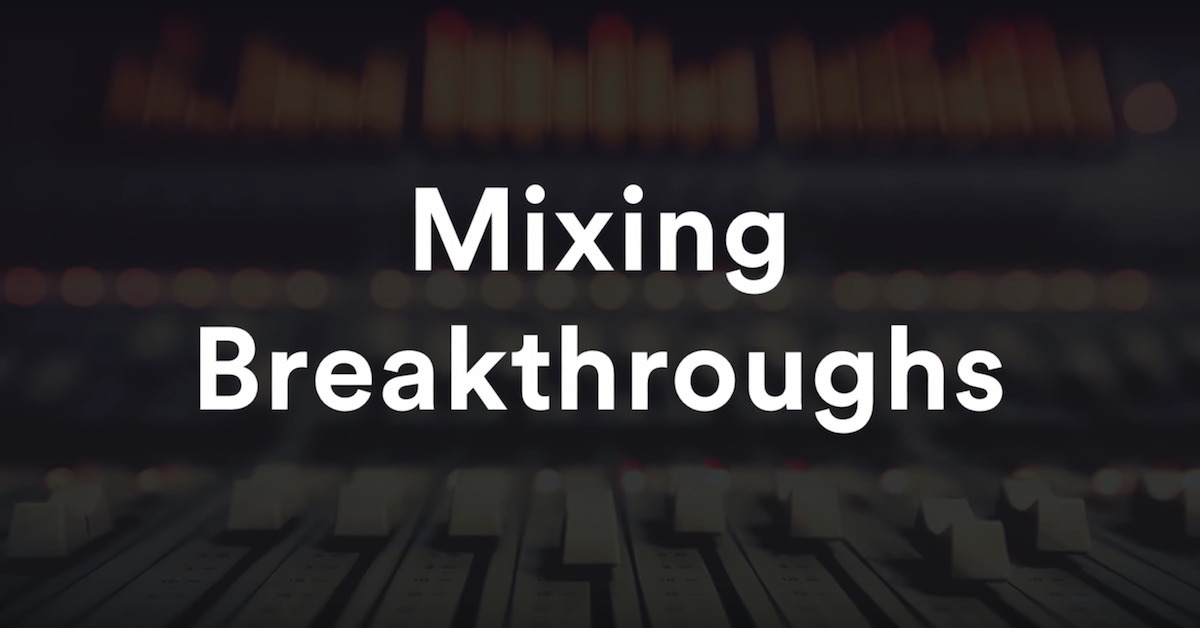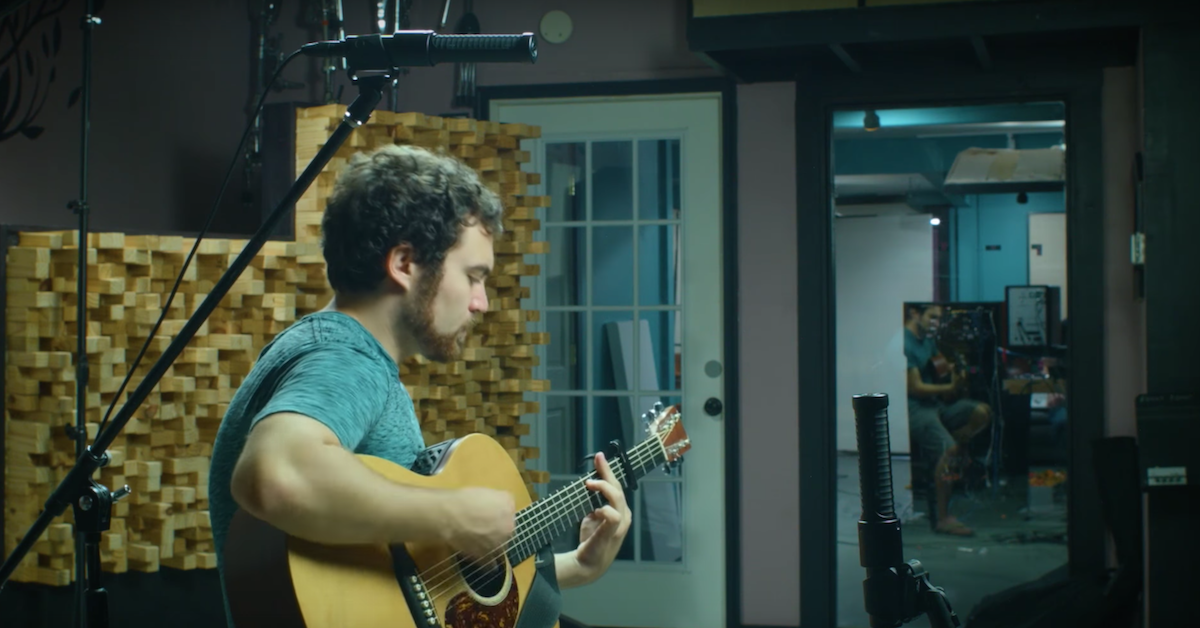9 Essential Skills for Electronic Music Producers
Article Content
Every great producer has spent significant time and energy perfecting their craft and creative approach. Below are several areas to consider in your personal quest to become a successful music producer.
1. Technical Ear Training
Knowing when something sounds good and knowing why it sounds good are two completely different ideas. The first is intuitive and generalized. Anyone can claim an opinion about music and there are many common adjectives that people use every day. But knowing the specific language of audio is crucial for effectively communicating with artists, musicians and engineers. But knowing how to refer to the particulars of a process like filtering or compression is just one-half of the issue. Knowing how a particular process or parameter tweak will affect the sound before implementation is key. Jason Corey speaks of the term isomorphic mapping as a means of connecting “technical and engineering parameters to perceptual attributes.” (Corey 6)
Put simply, this refers to the idea of knowing the ramifications of a parameter change or a specific process before it occurs. Without this knowledge, the production process would be an everlasting hunt for the perfect sound through blind trial and error. So it is crucial for producers to know the effect of the tools at their disposal and one way to improve these type of skills is by using technical ear training apps such as:
1. Quiztones (from The Pro Audio Files)
In as little as 10 minutes a day, these handy little apps will get you familiar with the effects of processes like EQing/filtering, compression, reverb, delay, saturation, etc. They will also fine-tune your sensitivity and ability to identify frequency ranges and subtle changes in amplitude. Of course, the very best way to practice is by doing, so find as many mixing resources as you can to get practice working with raw session recordings. Here are a couple of resources for unmixed session tracks:
2. Live From The Lab – Telekunken
3. Pro Audio Files On Demand offers over 20+ multitrack sessions to accompany tutorial videos for members
2. Musical Ear Training
Traditional musical ear training is equally important for a music producer. At a bare minimum, you should be able to distinguish basic chord qualities, intervals, common chord progressions, meters and rhythms. The more advanced your understanding of theory, the more engaging your work will be since you will have more tools and ideas in your musical mindset.
In the same way that technical ear training helps you communicate with an engineer, musical ear training can significantly speed up the creative process. Poking around a keyboard to find a nice voicing that works is fine. Sometimes a little free improvisation can yield amazing results. But once you find the chord, being able to identify it takes things to the next level. Writing a simple lead sheet can communicate a piece of music to a trained musician in literally seconds, as opposed to painstakingly describing every note you’re playing chord to chord. There are several apps and resources for musical ear training such as:
Think of this kind of work as aural calisthenics. Daily jumping jacks for the ears.
3. Understanding the Genre
If you are working in specific genres you should be aware of some common characteristics that identify the musical category: tempo, texture, instrumentation, form & structure, idiosyncratic audio processing techniques and major artists. In the excellent book, Making Music — 74 Creative Strategies for Electronic Music Producers, Dennis DeSantis mentions the idea of making a catalog of attributes (DeSantis 22). This involves taking a favorite piece of music and meticulously analyzing everything about it — tempo, harmony, melody, instrumentation, form, processing, etc. Then using this information as a sort of template, you can create your own music based on the underlying concepts that resonate with you. It’s a great way to write a piece and has the added benefit of giving you a deeper understanding of the genre.
4. Mistakes Can Be Great!
The ability to recognize serendipitous events in the process of producing can be extremely fruitful. Even when you try to do everything “correctly,” you may come across a sound or aberration that produces unexpected and exciting results. When you do, don’t dismiss it because it’s “wrong.” Explore it as a new possibility. Even if it doesn’t fit the current project, make note of it and store the idea away for future use. Although artificial intelligence technology may be just a few years away from passing the Turing test, I’m not convinced a computer can be programmed to recognize the beauty of error.
5. Ability to Inspire a Great Performance
There are no rules for being inspiring because every artist and engineer is different. But I think in terms of leadership in general (and you can think of a producer as the leader of a project), there are a few simple things to keep in mind:
- Be positive and energetic — this can be infectious
- Be a good collaborator — willing to listen to and try new ideas as they emerge
- Be a good communicator — know when to be specific and when to be open
- Be a constructive critic — know how and when to offer alternatives and solutions
- Be creative — thinking out of the box will inspire others to do the same
- Be wholeheartedly committed to the project — anything less will be obvious and counterproductive
- Be confident — this too is infectious
- Be a rebel — rules are great because without them there would be nothing to break
6. In-Depth Knowledge of the Software and Hardware
Knowing everything about the available software is clearly essential, not just for creating a successful project, but for accomplishing that in a reasonable amount of time. The creative moment can be fragile and stopping to look something up in a manual can quickly put a halt to an otherwise creative flurry. If you need something to happen and you’re not sure how to do it immediately, make a note, find a quick workaround and keep going. You can flesh out the details later. The time to look things up and educate yourself is between projects. Use that time to experiment, read about those few mysterious parameters you keep seeing, figure out how to do repetitive tasks faster with key commands, watch some tutorials, etc. There’s a time and a place to explore the technology; choose that time wisely.
7. In-Depth Knowledge of Creative Mixing and Recording Techniques
As with software, it is important to be autodidactic and learn more about your craft every day. Again, learning new techniques is best left for the time between projects, except for those that emerge serendipitously as discussed above. There is no shortage of articles and videos on the subject of audio production. It has never been easier to acquire new knowledge given the unprecedented accessibility to anyone with a smartphone. So to paraphrase a quote from Carl Schroeder, the great jazz pianist and a former teacher of mine, I’ll share these words: “while you are sleeping, someone else is learning.” Sweet dreams.
8. Music Theory
Related to musical ear training discussed above is the area of music theory. This term makes many producers cringe. I’ve heard more than one person say to me: “I play by ear and I’m happy with the results” or “I’m worried if I try to make sense of it, everything will be spoiled.” This to me, whether conscious or not, is an expression of pure laziness. The idea that not knowing is better than knowing is counterintuitive and ridiculous. As someone who has been on both sides of the fence let me say it’s definitely better to be on the side that knows. I have never heard anyone say that knowing music theory spoiled their creative vision. In fact, just the opposite. They were suddenly able to understand their purely intuitive choices and were able to expand on those ideas even more. Also, a knowledge of theory allows you to dig deeper into the work of others and uncover their creative approach — very eye-opening and inspiring! Lastly, it radically speeds things up when having to communicate ideas to performers, arrange vocals, make changes on-the-fly in a session, etc. Time literally is money when people are on the clock, so be prepared. Take the time to learn the fundamentals of music theory, I guarantee it will pay-off somewhere down the road.
9. Management and Leadership Skills
Time management, money management and people management can all be part of a producer’s role. Things to consider:
- Be organized — have all pertinent contact and scheduling information for all parties immediately accessible
- Be clear — make sure everyone knows their specific role and expectations
- Be respectful — of the time, craft and creativity of all those involved
- Be calm — this too can be infectious; panicking or freaking out never helps a situation
- Be a leader — this means simply taking responsibility, being proactive, sharing success as well as failure, instilling confidence and being easy to work with
Conclusions
Being a great producer is about creating great music. But like any area of expertise, there are particular skill sets that will facilitate a better result in a shorter period of time. Many of the things mentioned above are common sense and can be extrapolated to other endeavors beyond producing music. When dealing with people there are many areas of crossover regardless of the nature of the project. Do not think that the music business is somehow different. If anything, it may be more difficult in this regard since the ego of the artist must be considered, not to mention your own. The technical skills and theoretical knowledge essential to producers are probably easier attained than are communication skills, which cannot be readily learned from a book. To increase your probability of success — just be good at everything. How’s that for advice 🙂
References
Corey, Jason, and David H. Benson. Audio Production and Critical Listening: Technical Ear Training. Routledge, Taylor & Francis Group, 2017.
DeSantis, Dennis. Making Music: 74 Creative Strategies for Electronic Music Producers. Ableton AG, 2015.
Check out my other articles, reviews and interviews
Follow me on Twitter / Instagram / YouTube







